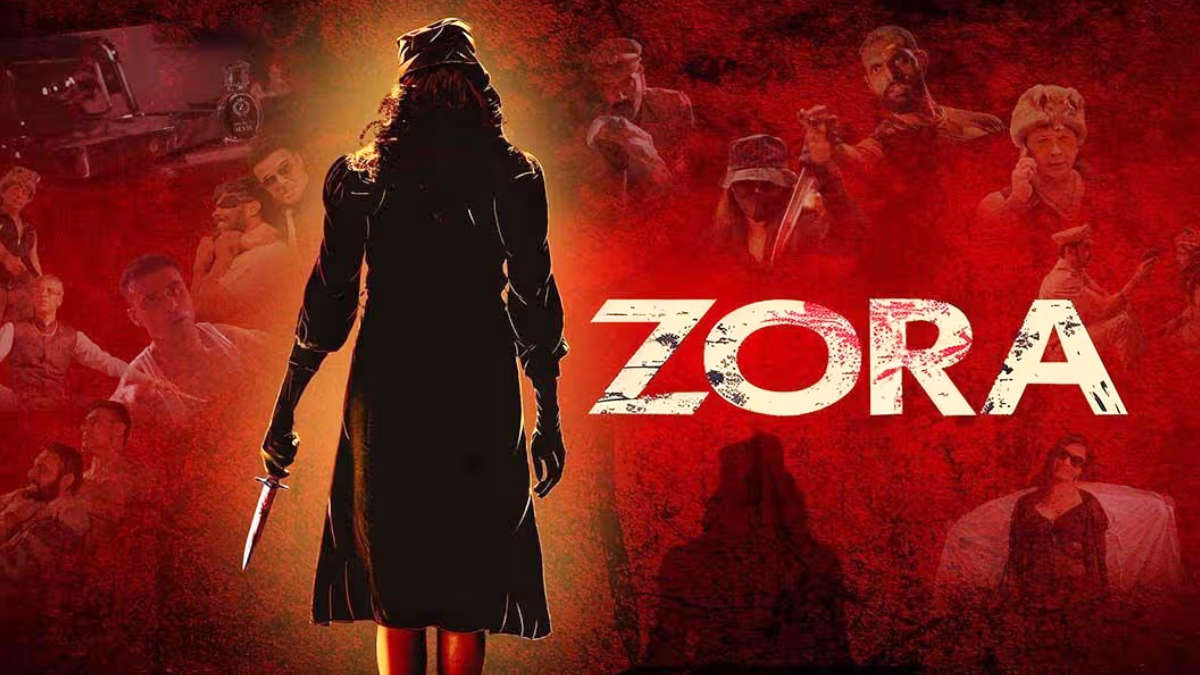Veteran director Rajiv Rai, who once ruled the action-thriller space in Bollywood with iconic hits like Tridev, Vishwatma, Mohra, and Gupt, returns to direction after more than two decades with Zora. Rai’s earlier films were synonymous with slick action, grand storytelling, and foot-tapping music — a combination that turned many of his works into cult classics. Naturally, Zora came with towering expectations, especially from audiences who grew up idolizing his style.
Unfortunately, what unfolds on screen is a film so far removed from Rai’s known cinematic grammar that it feels like the work of a completely different filmmaker.
From the outset, Zora gives off the vibe of a generic, low-budget thriller with no real identity. Be it the film’s key art, trailer, or even the promotional material — nothing carries the signature style or flair that Rajiv Rai was known for. For those familiar with his work, the absence of his trademark directorial elements is jarring.
Zora: It’s not just underwhelming — it’s disheartening.
Set in Jaipur, the story revolves around a mysterious female serial killer named Zora. The film opens with the murder of a decorated police officer, and soon it is revealed that his death, like several others, may be part of a targeted killing spree. But the twist lies in the motive and identity of the killer.
Enter Ranjit Singh (Ravinder Kuhar), a young sub-inspector in the crime branch, and the film’s central character. Haunted by the trauma of witnessing his father’s murder as a child in 2003 — a murder disguised as a suicide — Ranjit grows up to join the police force and silently pursues justice for his father, who was wrongfully accused and posthumously dishonored.
As the narrative progresses, Zora continues to eliminate those responsible for the long-buried crime. The suspense leads to a climactic revelation of the killer’s identity — a moment designed to shock but failing to land due to the film’s clunky build-up.
Writing about performances in a film like Zora is challenging — not because there’s little to say, but because the presentation itself renders judgment difficult. Any critique here either feels unfair to the actors or forces one to direct all blame at the filmmaker.
Truthfully, the onus falls on the director. It is ultimately the director’s discretion — from casting to extracting nuanced performances to shaping the final product in the edit room. An actor can only deliver what is demanded of them, and in Zora, there seems to be a complete disconnect between direction and performance.
Ravinder Kuhar, in the lead role, visibly overplays his part — possibly driven by the excitement of leading a Rajiv Rai film. Much of his screen presence seems focused on showcasing his physique, perhaps with an eye toward attracting future roles, rather than immersing himself into the psyche of his character. Unfortunately, the performance lacks the depth or restraint needed to ground the film emotionally.
The editing is equally uninspired, with scenes poorly stitched together, robbing the film of pace and tension. The background score, once a hallmark of Rai’s thrillers, feels like a pale imitation of his earlier successes. Instead of elevating the mood, it triggers a sense of déjà vu — and not in a good way.
Somehow, it’s difficult — almost painful — to reconcile Zora with the name Rajiv Rai. The man who once gave Bollywood its most stylish thrillers seem to have either lost his touch or handed over the reins to a team that couldn’t carry his vision forward.
The craft, the music, the writing, the impact — none of it reflects the Rajiv Rai we once admired. It’s hard not to question how involved he truly was in the process. One can only hope that this is a misstep, and not a reflection of what’s to come.
Zora is a film that neither works as a standalone thriller nor as a comeback vehicle for a legendary filmmaker. It feels out of sync with its own legacy, and even more so with today’s cinematic expectations. For fans of Rajiv Rai, this film doesn’t just disappoint — it hurts.
Here’s hoping we someday see Rajiv Rai return in form — with a story, vision, and cinematic touch that truly bears his name.
Movie: Zora
Director: Rajiv Rai
Cast: Ravinder Kuhar, Karan Vir, Nikhil Dewan, Sofia Parveen, Dilraj Kaur, Meena Vaibhav, Leena Sharma, Neetu Bhatt
Theatrical Release Date: 8th August 2025
Run Time: 2hrs 5.04mins
Zora

1
